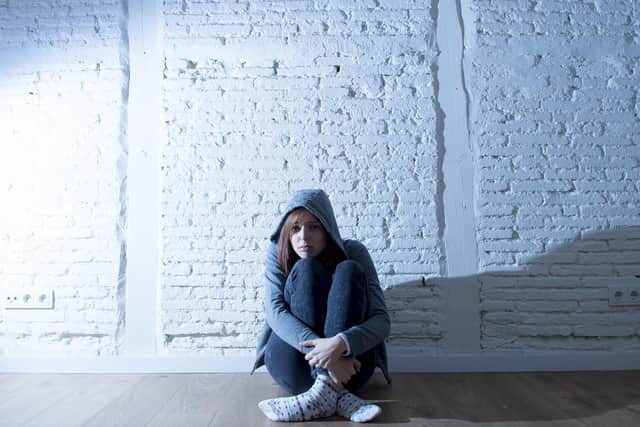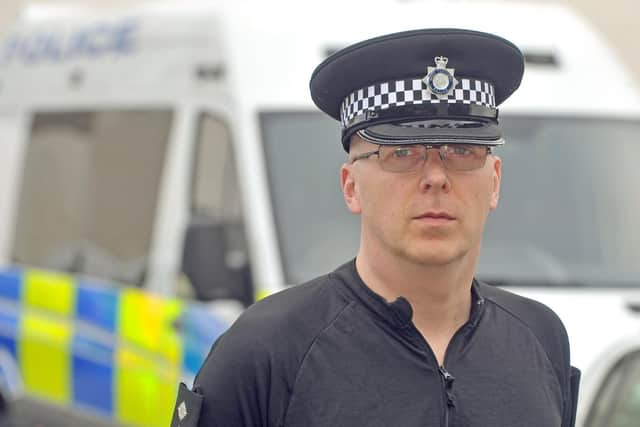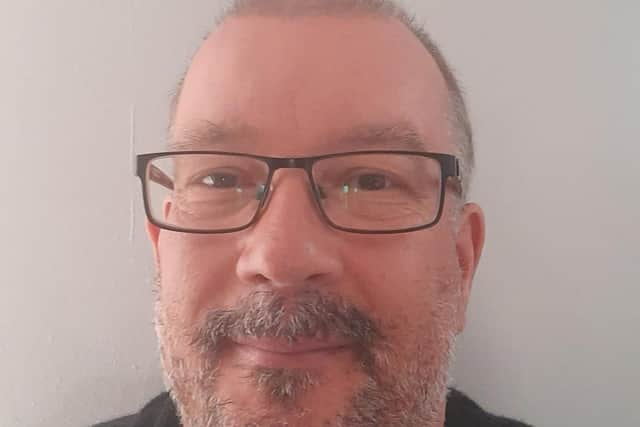"All the problems pre COVID have not gone away, they are just more difficult to deal with" - how social care workers are trying to protect vulnerable adults from the pandemic
and live on Freeview channel 276
Leeds City Council's Joint Care Management Learning Disability team is based in Chapel Allerton, but works all across the city trying to safeguard adults who are in danger of putting themselves or others at risk - and that is just on a normal day.
Safeguarding and risk manager, Matt Lindley tells the Yorkshire Evening Post, as it shines a spotlight on how coronavirus has impacted the work being done within adult social care, that all the same issues are there as they were before the outbreak - it is just now more difficult to deal with them.
Advertisement
Hide AdAdvertisement
Hide AdThe Joint Care team works with adults who have suffered with varied and complex issues such as sexual and financial abuse and exploitation, or adults with learning difficulties. Among other duties they signpost the vulnerable people they are in touch with to other services, like drug appointments, or help to move that person to a safer place to live such as a care environment.


He said: "Part of that service is helping to deal with situations where adults are at risk of placing themselves or others, in danger. All the problems that we saw pre COVID restrictions have not gone away- they are still there but just more difficult to deal with.
"It is more difficult to engage face to face with people. I might have gone with a social worker to do a visit to see somebody and see what their issues are. We are now relying on care staff who are still working and still able to do these visits (to report back) or use things such as Skype or Whatsapp. But, for people with learning difficulties or who have complex problems that is a difficult task."
The people that safe-guarding teams work with also struggle with understanding the lockdown and social distancing requirements, so the Joint Care Management team has also been tasked with trying to hammer home that message.
Advertisement
Hide AdAdvertisement
Hide AdIt has introduced a three step approach. The first step is a series of straight-forward pictures, symbols and text that have been created to say what coronavirus is, how it might affect someone and how to prevent others getting it.


Mr Lindley said: "These people are not getting their information from government briefings or by watching the news. They are living in residential care homes, supported living or their own homes with visits. We have provided a resource to all these providers to allow them to have a conversation with people in the first instance. In the majority of cases we are finding that is doing the trick."
If not, extra support has been agreed with the local authority, as a second step, to help keep people at home. That might be picking up shopping or medication so vulnerable adults don't need to go out and risk getting distracted and meeting other people.
And should that not be effective, a partnership has been agreed with West Yorkshire Police where an officer will visit the person to explain the coronavirus restrictions in the third step.
Advertisement
Hide AdAdvertisement
Hide AdMr Lindley said: "If we have gone through the other stages of giving information and additional support, if it is still not working, we will ask the police to have a conversation because sometimes the uniform can be much more effective than a care-worker saying it.


"We had a situation last week with a person who kept being absent from their care facility to visit family members. We had gone through the processes but they were not able to moderate their behaviour. The police went to visit and gave them a warning and we are waiting to see how that pans out."
Ch Insp Richard Padwell added: "This is an example of really positive and close working between Social Care and Police colleagues. We have a shared aim of engaging with and encouraging people to comply with the regulations, to keep everyone safe. This protocol means we have a clear process about how the police can be involved where it is necessary, with an emphasis on our Neighbourhood policing teams problem solving and providing appropriate support to Social Care colleagues.”
Mr Lindley says the best part of his job is making a difference to someone's life and seeing they are not in danger anymore. But, he added, the part that his 60 strong team is playing, is just as important as frontline workers.
Advertisement
Hide AdAdvertisement
Hide AdHe added: "If we weren't doing this, more people would be in hospital, if we were not managing this, the infection rates would go up. The emphasis of our work is to make sure people don't put themselves or others at risk. The heroes here are the people that turn up to work and knock on people's doors - they are the real heroes."
A message from the Editor:
Thank you for reading this story on our website. These are challenging times but the team at the Yorkshire Evening Post need your support more than ever in the weeks ahead.
While I have your attention, I also have an important request to make of you. In order for us to continue to provide high quality and trusted local news on this free-to-read site, I am asking you - wherever possible and providing it is safe for you to do so - to also please purchase a copy of our newspaper.
Inevitably falling advertising revenues will start to have an impact on local newspapers and the way we continue to work during this period of uncertainty. So the support of our readers has never been more important as we try to make sure that we keep you connected with the city you live in during this time. But being your eyes and ears comes at a price. We need your support more than ever to buy our newspapers during this crisis.
Advertisement
Hide AdAdvertisement
Hide AdOur team of trusted reporters are working incredibly hard behind the scenes - from kitchen tables and spare bedrooms - to look at how we can do this and your continued support to the YEP will help to protect its viability in the days and weeks ahead.
For more details on our subscription offers please visit www.localsubsplus.co.uk/YEP, email [email protected] or call us on 0330 4033004.
Thank you
Laura Collins
Editor